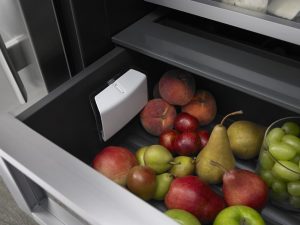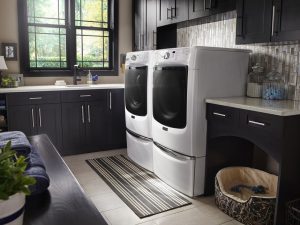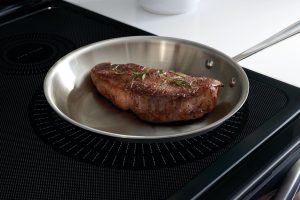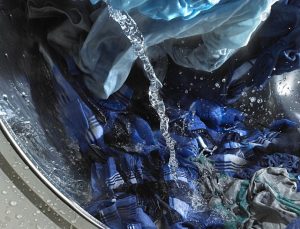How to Get the Best Out of Your Fridge Crisper Drawer

Many fridges are supplied with a hand crisper drawer that keeps your produce fresher for longer. These are often located at the bottom of the fridge space, and some people purchase extra ones if they typically buy more fresh produce. But, some people don’t understand how a crisper drawer works, and they are often used as a storage area for things that don’t fit on a fridge shelf. In this article, we will explain how a crisper drawer works and how to get the best out of it.
How Does a Crisper Drawer Work?
The crisper drawer is sealed off from the rest of the fridge, and it has a lower or higher humidity compared to the rest of the appliance. There are fridges that have multiple crisper drawers with pre-set humidity settings, and others allow the user to set their own humidity levels. Adjusting the humidity is simple; if you need high humidity and small vent at the rear of the drawer closes, and this seals the compartment. If you need lower humidity, the same vent is opened, and this allows some of the moisture in the crisper drawer to leave. The tricky part is deciding what to store in the crisper drawer and the humidity that you need for different types of fresh produce.
What Produce is Stored in a Crisper Drawer?
You can store any kind of food in a crisper drawer if you need extra space. But, a crisper drawer will always work better if it’s used to store your fresh produce. If you find that you throw away a lot of produce because it goes bad in a few days, your crisper drawer is the answer. Before you begin to place all of the produce in the crisper drawers, it’s important to remember that there are high and low humidity settings. If you place produce in the wrong crisper drawer, it may not store well, and it can be damaged. Different types of produce need different humidity levels, and we will explore this in more detail below.
Low Humidity Produce Storage
Foods that tend to rot as they age and go bad should be stored in your low humidity crisper drawer. This included foods such as fruit that don’t tend to easily lose moisture, but they do emit gases as they degrade in quality. The open vent in the crisper drawer allows those gases to escape, and this helps the produce to stay fresh for longer periods of time. Here are some common foods that should be stored in a low humidity drawer; they are apples, pears, grapes, peaches, and avocados.
High Humidity Produce Storage
Most cruciferous vegetables, leafy greens, and some softer fruits tend to wilt as they get older, and they need to be kept in a high humidity crisper drawer. These types of food don’t tend to release much gas as they are stored, but they do lose moisture. As the name would suggest, a crisper drawer set to high humidity will keep the vegetables crisp and fresh. Some prime examples of food that need high humidity storage include broccoli, carrots, cucumbers, strawberries, and lettuce.
Pack Those Crisper Drawers
A crisper drawer on a low or high humidity setting will work better if it’s almost full. If you’ve become accustomed to fresh produce going bad, you may be reluctant to purchase larger quantities. But, if you want to get the best out of your crisper drawers, it’s a good idea to pack those foods in and rotate the older foods to the front.
If you’re thinking about an upgrade for your refrigerator, you can explore your available options in our collection of appliances. Speaking to a home appliance expert will provide a specialized service to meet your needs.
- Designing the Ultimate Outdoor Bar: Must-Have Appliances for Year-Round Fun
- Luxury Refrigerator Guide 2025: Built-In vs. Freestanding and What to Know Before You Buy
- How Smart Appliances Are Changing Luxury Kitchen Design in 2025
- The Ultimate Outdoor Grill Guide for 2025: Built-In vs. Freestanding
- Smart Bathroom Faucets & Fixtures in 2025: Blending Technology with Luxury Design
- Built-In Coffee Machines: Are They Worth It for Your Kitchen in 2025?
- How to Choose the Right Dishwasher for Your Home: Noise, Capacity, and Features Explained
- Top 5 Kitchen Appliance Colors and Finishes for 2025 (And How to Match Your Style)
- Why a Countertop Ice Maker is a Must-Have for Summer Kitchen Upgrades in Southern California
- How to Remove Scratches from Stainless Steel Luxury Appliances






